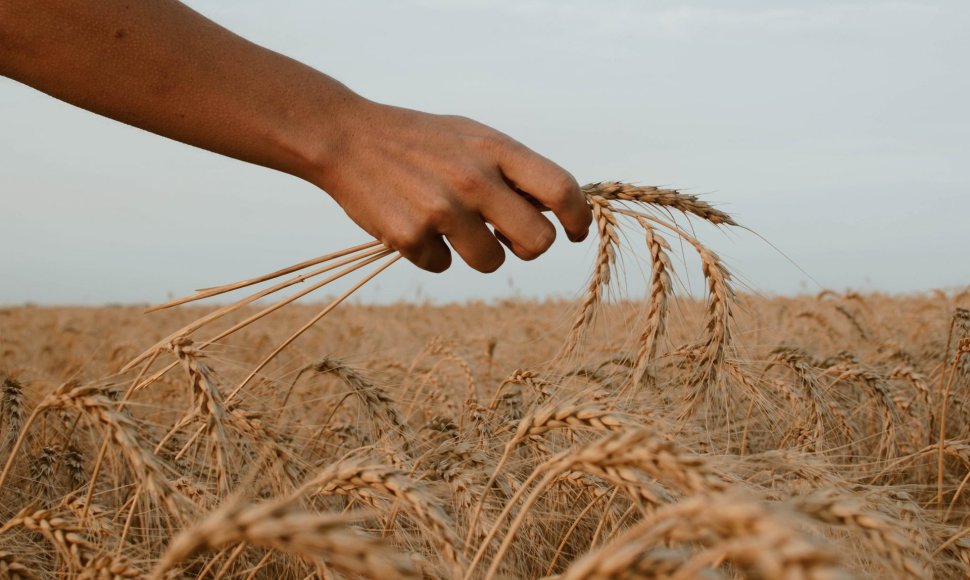“Right now is the best moment for farmers to fix grain purchase prices. Watching the situation on the international markets, as well as Russia and Ukraine where they are already beginning to harvest wheat and their harvest forecasts could be improved, it is likely that prices could dip in the near future,” Svajūnas Banelis, AB Linas Agro Head of Grain Trading, says.
For Lithuania and Latvia, good harvests are predicted this year, however other European markets – Ukraine, Germany, France, and the UK – have recently lowered their winter culture harvest forecasts. This year is due to be especially tough for French farmers – the wheat harvest forecast there has been reduced by a sizeable 21%, while the rapeseed forecast is a massive 29.5% lower than the typical average.
“Such reports have led to growth in grain purchase prices in recent weeks. The wheat purchase price on the EuroNext (MATIF) bourse has reached a peak of EUR 190 per tonne and has already begun falling. Higher prices are unlikely because the global wheat reserves are predicted to be the largest in a decade by the end of this year. Furthermore, the supply of these cultures from the USA, Australia, Russia and Ukraine is truly massive and these countries will be the main wheat exporters. While some Russian and Ukrainian regions have suffered due to unfavourable climate conditions such as droughts and floods, they will be the most aggressive players on the market this season,” S. Banelis states.
The price of rapeseed on the MATIF market rose to EUR 382-383 per tonne in recent weeks. According to the expert, the main reason for this price increase is optimistic reports related to COVID-19. “In recent weeks, we have observed not only grain but also oil price increases on the markets, which reacted to reports of the creation of a vaccine against the coronavirus,” S. Banelis notes.
AB Linas Agro is currently purchasing second class wheat at a price Eur 9 higher than last year and pays Eur 12 per tonne more for rapeseed, while barley is purchased at Eur 19 more than last year.
Saudi Arabia has lowered the quality threshold: cheap Russian grain greenlit
Last week, AB Linas Agro loaded a ship in Klaipėda with the last wheat from last year’s harvest. This wheat has departed for Africa and the company is now receiving new harvest shipments.
The first batch of winter barley reached the company’s grain elevator in Vilkaviškis more than two weeks ago and the first rapeseed harvest was brought in to the elevator in Lukšiai, Šakiai region a week ago. In the coming weeks, all thirteen of AB Linas Agro’s grain elevators in Lithuania and Latvia will be active with grain intake work and the first ships carrying this year’s harvest will depart for foreign markets in mid-August.
According to AB Linas Agro experts, the competitive environment in our export markets is very tense. High quality, high protein Lithuanian grain has in recent years been in high demand in Spain and South Africa, while the second-grade grain is wanted in Saudi Arabia. Competition in this latter market and also in Egypt will be especially tense this year because Russia is aggressively making its way into these markets.
“Over the past few months, Russia has dispatched two ships of wheat to Saudi Arabia. This week it was announced that two large state Saudi Arabian grain milling companies were privatised and entered private ownership, while the process of transfer to private companies is still ongoing for another two-grain mill. It could be that private companies will loosen the requirements on the quality of grain purchases and then, Russia, with its cheaper and lower quality wheat, will once again be first at the auction of the goods, which should be announced next week in Saudi Arabia. Among other potential markets for Lithuanian grain this year, we see the Republic of South Africa and also Algeria, which also has very demanding quality requirements. There might not be as much demand in Spain this year because the country has seen fairly high wheat fertility this year,” S. Banelis says.












